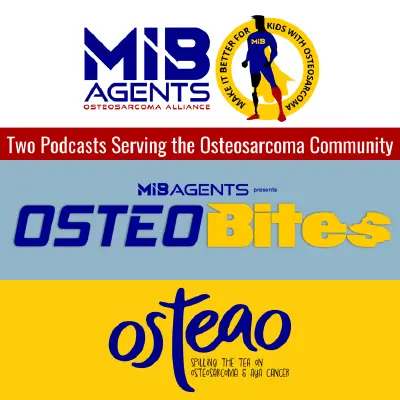
Dr. Betsy Young, a physician-scientist from UCSF provides an overview of her funded work: Tumor cGAS-STING repression drives immune evasion in osteosarcoma and is therapeutically targetable via host STING activation. This work was funded by an MIB Agents 2024 OutSmarting Osteosarcoma YI Hope grant Because of Charlotte.Osteosarcoma (OS) has an immunosuppressive macrophage-rich, T-cell-depleted tumor microenvironment (TME). By performing bulk RNA seq of OS cell lines treated with STING agonist, the lab has defined an OS-specific STING activation signature, which demonstrated a significant protective effect on survival in OS patient samples. In immunocompetent OS models, systemic STING agonism shows curative anti-tumor effects, shifts the tumor microenvironment towards a pro-inflammatory phenotype, and induces immunologic memory. Importantly, host STING activation is sufficient to promote this anti-tumor immunity. The lab has demonstrated that STING activation has anti-tumor benefit in animal models and a protective effect in the human disease, nominating this innate immune sensing pathway as an important therapeutic target in OS.As a physician-scientist and a pediatric oncologist, Dr. Young's aim is to advance the field of pediatric oncology in her research career focused on the immunobiology of osteosarcoma. She completed her Pediatric Hematology/Oncology fellowship training at UCSF, receiving strong clinical training in high-risk pediatric solid tumors and early-phase clinical trials. Now, as a faculty member, she is investigating the pathogenesis of osteosarcoma metastasis in the Sweet-Cordero lab at UCSF, with a specific focus on immuno-oncology translational therapeutics.